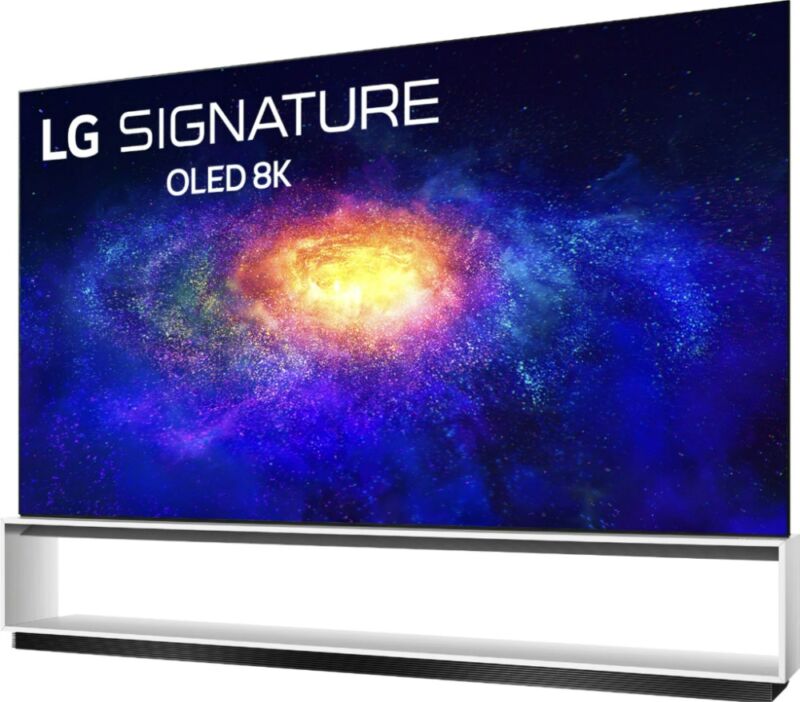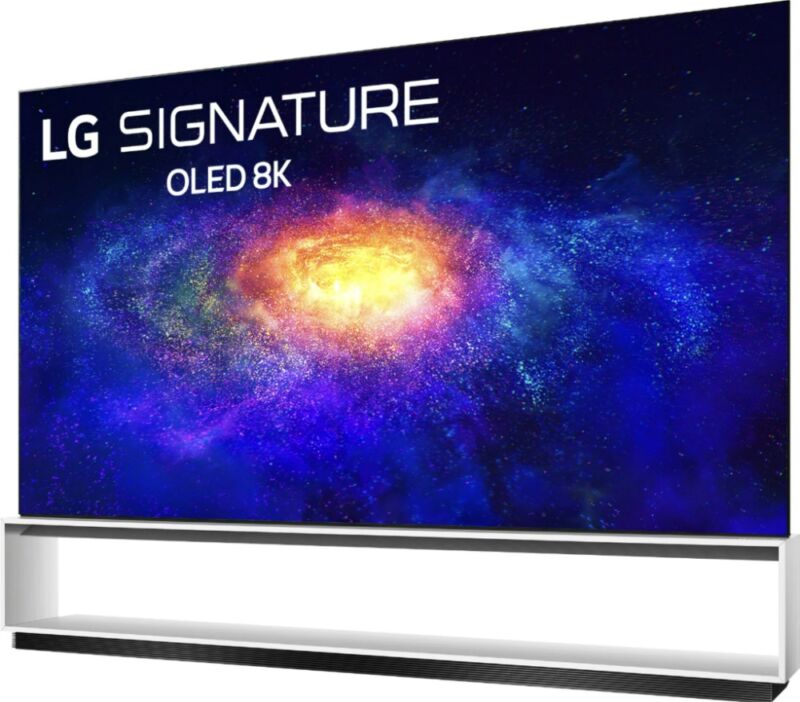
Enlarge / LG’s prior 8K OLED TV (pictured) started at $19,999.99. (credit: LG)
8K TVs aren’t that popular yet. There’s limited content to watch on them, and it can be hard to tell the difference between 4K and 8K resolutions in a home theater setup. But perhaps the most obvious obstacle is price. And if you throw OLED into the mix, the price tag becomes astronomical. LG’s current 8K OLED TV proves that with a starting price of $20,000. The company’s 2022 models will be a bit less expensive, though they’re still out of reach for most consumers.
After announcing the Z2 series of 8K OLED TVs in January, LG said on Monday that the TVs will release in April, coming in at $12,999 for the 76.7-inch TV and $24,999 for the 87.6-inch model. That’s $7,000 cheaper than 2020’s ZX 76.7-inch 8K OLED TV and $5,000 cheaper than the 88-inch class.
LG’s upcoming Z2 lineup is pricey, but the sets are among the only options if you want 8K in contrast-rich OLED. B&O’s 8K OLED TV starts at $18,125 for 65 inches. Samsung’s 8K TVs use a Mini LED backlight, but the 2022 Neo QLED is $6,500 for an 84.5-inch model. The 74.5-inch version, meanwhile, costs $4,700.













